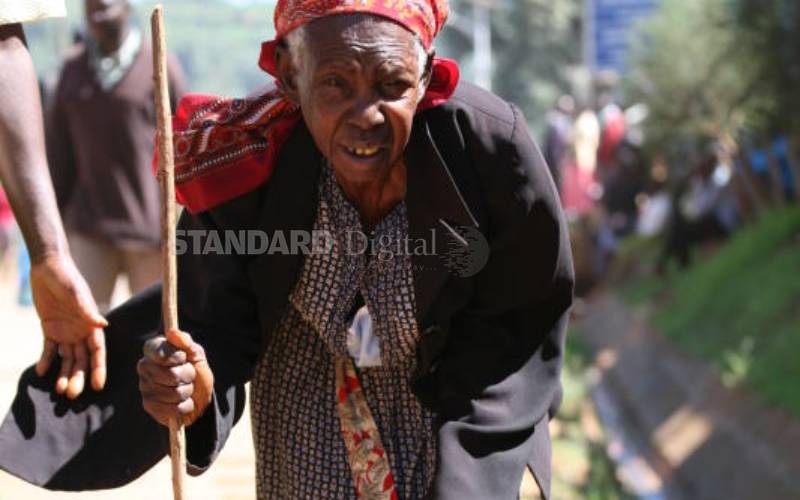
At least 350,000 residents of Kisumu are set to benefit from Sh540 million annual County Health Insurance targeting the vulnerable in the society.
Governor Anyang’ Nyong’o yesterday launched the project termed ‘Marwa Solidarity Health Insurance Scheme’ in partnership with National Hospital Insurance Fund (NHIF), with beneficiaries set to get health services equivalent to those enrolled for the NHIF super cover.
In 2020, the county signed a memorandum of understanding with NHIF for funding and provision of a social health insurance cover to its vulnerable households, who were identified and verified based on their social and economic status during the UHC registration exercise in 2018/2019 as a first step towards ensuring successful implementation of mandatory health insurance within Kisumu County.
For the Marwa Scheme, the County is investing Sh67,500,000 as the first quarter premium payment for the 45,000 most vulnerable households with support from PharmAccess, a Non-Governmental Organization dealing with healthcare in Africa.
According to the program, the county government will pay Sh6,000 annually for each of the 90,000 households enrolled.
The governor said the scheme was anchored in the Kisumu County Health Act, 2019, which also stipulates the implementation of mandatory health insurance for all Kisumu residents.
“Marwa is about enabling people to access quality and affordable healthcare. It is the foundational investment in human capital and towards ending extreme poverty. Marwa marks my commitment to ensure that all Kisumu residents regardless of their status access decent healthcare,” said Nyong’o.
He said an additional 255,000 mostly self-paying households would be reached through the solidarity fund in the next 12 months.
The county has mapped 48 public health facilities across the seven sub-counties ranging from dispensaries to the county referral hospital, where Marwa beneficiaries can access health services.
The cover holders will only require their mobile numbers or identification cards to access care.
Economic survey
NHIF is conducting a biometric registration to authenticate patients using the scheme and is promising transparency in scheme utilisation, member engagement and timely payment of capitation through a fully digitized scheme management, potentially via the M-Tiba platform.
County Health Executive Prof Boaz Nyunya yesterday said the beneficiaries were identified from the 2019 economic survey indicators.
He said the project would be implemented in two phases, with the first phase targeting 45,000 households. It is estimated that each household has an average four people.
“We will evaluate the first phase of the project and see its viability, which will then inform how soon we roll out the second phase,” said Nyunya.
He added that the first phase would see about 20 public health facilities enrolled to offer the services, and more to be listed with time.
Nyunya said the focus of the county was to increase financing of the facilities to ensure they provide quality and competitive services that will be attractive to residents.
“Even as we say the county is paying for the vulnerable groups, we encourage individual contributors to come in, as the entire scheme is targeting the entire Kisumu population. We are only paying for the vulnerable groups,” he said.
 The Standard Group Plc is a multi-media organization with investments in media
platforms spanning newspaper print
operations, television, radio broadcasting, digital and online services. The
Standard Group is recognized as a
leading multi-media house in Kenya with a key influence in matters of national
and international interest.
The Standard Group Plc is a multi-media organization with investments in media
platforms spanning newspaper print
operations, television, radio broadcasting, digital and online services. The
Standard Group is recognized as a
leading multi-media house in Kenya with a key influence in matters of national
and international interest.











